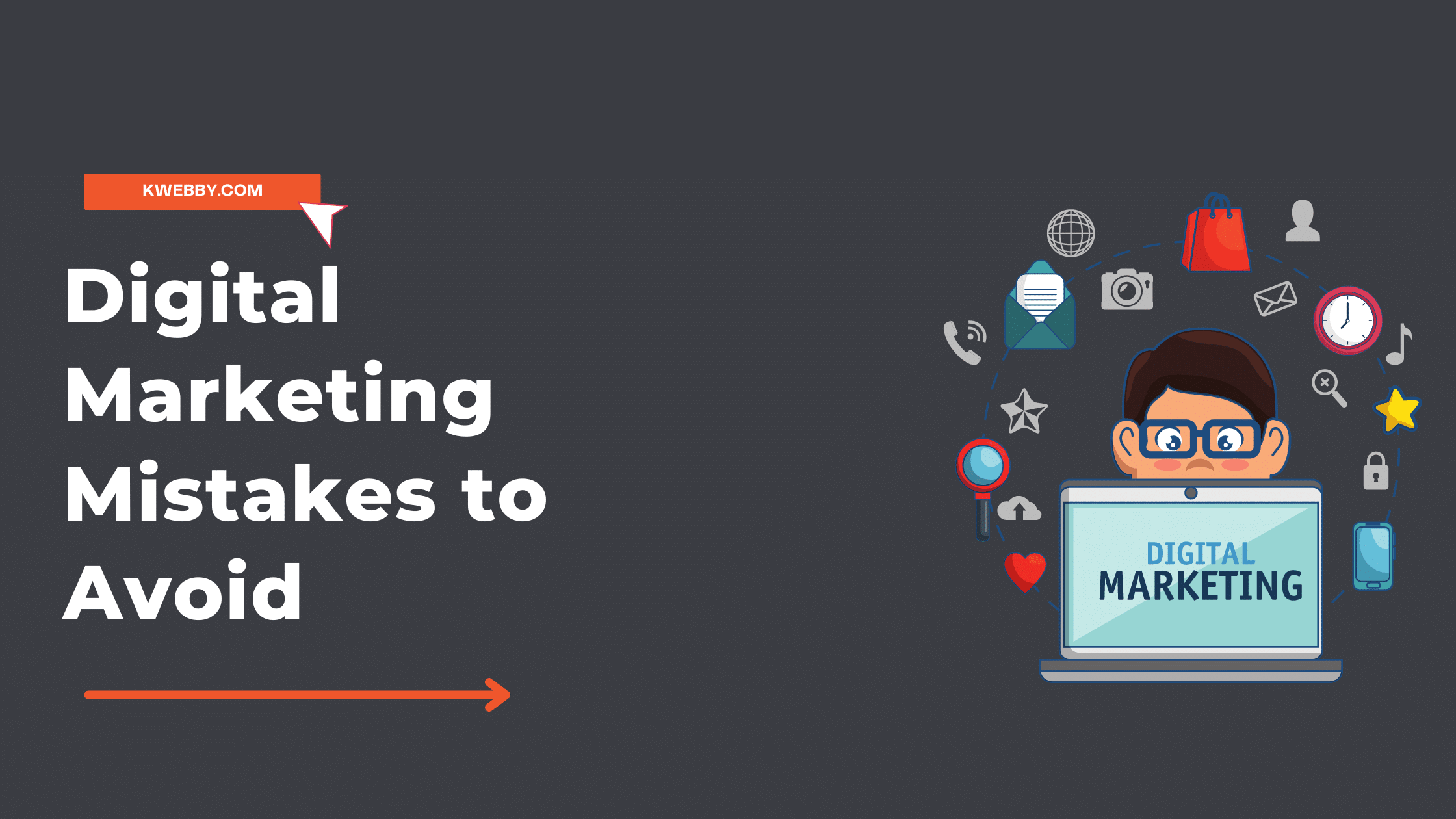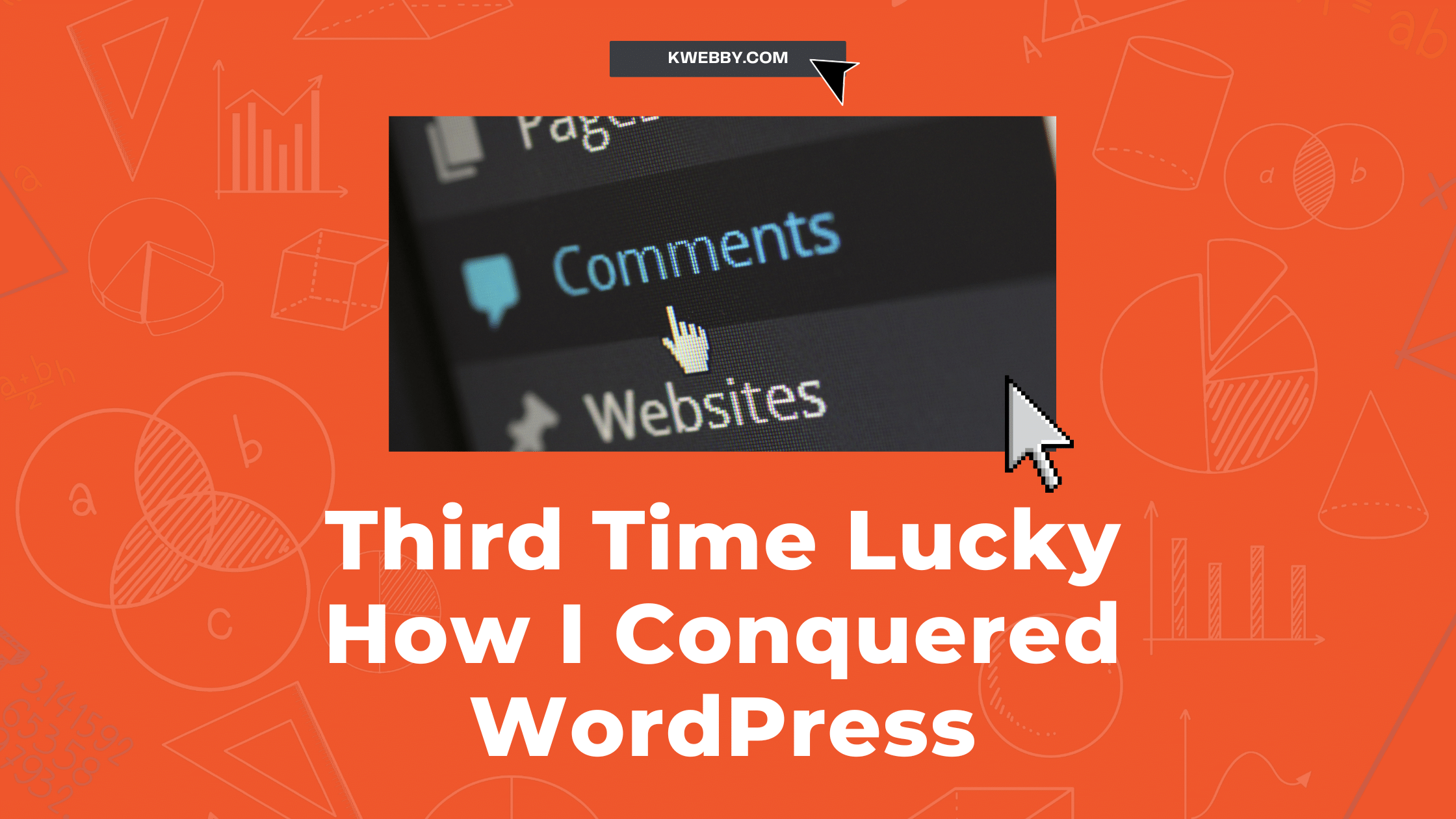
5 Digital Marketing Mistakes to Avoid in 2024
In today’s digital landscape, effective digital marketing has become a crucial aspect of any business strategy. It offers tremendous opportunities to connect with target audiences, increase brand visibility, and drive conversions. However, navigating the world of digital marketing can be challenging, especially with the ever-evolving trends and strategies.
To maximize the benefits of digital marketing, it is essential to understand the common pitfalls and mistakes that can hinder your success. By identifying these pitfalls and learning how to rectify them, you can optimize your digital marketing efforts and achieve greater results.
Whether you are a small business owner, a marketer, or an aspiring digital marketer, this article will provide valuable insights and practical advice on how to steer clear of these common mistakes. From neglecting target audience research to overlooking the power of content marketing, we will delve into each mistake and discuss effective strategies to overcome them.
Mistake #1: Neglecting Target Audience Research
According to Ken Savage, one of the most critical mistakes businesses make in digital marketing is neglecting target audience research. Understanding your audience is the foundation of any successful marketing campaign. Without thorough research and insights into your target audience’s demographics, preferences, and pain points, your marketing efforts may fall flat.
Target audience research allows you to create tailored marketing messages and campaigns that resonate with your intended audience. It helps you understand their needs, motivations, and behaviours, enabling you to craft compelling content that addresses their specific pain points. By neglecting this research, you risk wasting time, resources, and opportunities on strategies that fail to reach the right people.
To rectify this mistake, invest time and effort in conducting comprehensive target audience research. Start by analyzing existing customer data, such as demographics, purchase history, and online behavior. This information provides a solid foundation for understanding your current customer base.
Additionally, leverage market research techniques to gain deeper insights into your target audience’s preferences, challenges, and aspirations. Conduct surveys, interviews, and focus groups to gather qualitative data. This qualitative data complements the quantitative data and offers a more comprehensive understanding of your audience.
Another valuable source of information is social media platforms. Engage with your audience, monitor discussions related to your industry or niche, and listen to their feedback and opinions. This real-time interaction can provide invaluable insights into their needs and desires.
By conducting thorough target audience research, you can refine your marketing strategies and create highly targeted campaigns that resonate with your audience. Tailoring your messaging, content, and channels to align with their preferences and pain points will increase the effectiveness of your marketing efforts and improve your overall ROI.
Mistake #2: Failing to Optimize for Search Engines (SEO)
In the digital age, search engines have become the go-to resource for individuals seeking information, products, and services. Failing to optimize your website for search engines is a common and detrimental mistake in digital marketing. Without proper search engine optimization (SEO), your website may struggle to rank well in search engine results, resulting in reduced visibility and missed opportunities to attract potential customers.
SEO involves a set of techniques and practices aimed at improving your website’s visibility and organic traffic from search engines. By optimizing your website’s structure, content, and technical aspects, you increase its chances of appearing prominently in relevant search results.
One crucial aspect of SEO is keyword research. Identifying the keywords and phrases that your target audience uses when searching for products or services related to your business allows you to incorporate those keywords strategically into your website’s content. By aligning your content with the search intent of your target audience, search engines can better understand the relevance of your website to specific queries.
Additionally, optimizing your website’s technical aspects is essential. This includes ensuring fast loading times, mobile responsiveness, and easy navigation. Search engines prioritize user experience, so a well-optimized website will have a higher chance of ranking well in search results.
To rectify the mistake of failing to optimize for search engines, start by conducting thorough keyword research. Identify the keywords that are relevant to your business and have a reasonable search volume. Incorporate these keywords naturally into your website’s content, headings, meta tags, and URLs.
Next, focus on the technical aspects of your website. Optimize its loading speed, ensure mobile responsiveness, and create a user-friendly navigation structure. A well-structured and accessible website improves user experience and encourages search engines to crawl and index your content more effectively.
Lastly, invest in building high-quality backlinks. Reach out to reputable websites in your industry or niche and seek opportunities for collaboration or guest posting. By earning backlinks from authoritative sources, you enhance your website’s credibility and visibility in search engine results.
Mistake #3: Overlooking the Power of Content Marketing
Content marketing is a powerful digital marketing strategy that focuses on creating and distributing valuable, relevant, and consistent content to attract and engage a target audience. Unfortunately, many businesses make the mistake of overlooking or underestimating the power of content marketing. By neglecting this strategy, they miss out on numerous opportunities to build brand authority, foster customer loyalty, and drive organic traffic to their website.
Content marketing plays a vital role in driving organic traffic to your website. When you create high-quality and optimized content, search engines take notice. By incorporating relevant keywords and providing valuable information, you increase the likelihood of your content appearing in search engine results. This, in turn, attracts potential customers who are actively searching for solutions or information related to your industry.
To rectify the mistake of overlooking the power of content marketing, start by developing a content strategy. Identify your target audience and their needs, and create a content calendar that outlines the topics, formats, and distribution channels you will utilize.
Invest time and resources in creating high-quality and engaging content. This can include blog posts, articles, videos, infographics, podcasts, or any other format that resonates with your audience. The key is to provide valuable insights, solve problems, and deliver information that is relevant and helpful.
Additionally, promote your content through various channels, such as your website, social media platforms, email newsletters, and industry forums. Encourage social sharing and engagement by incorporating social sharing buttons and actively responding to comments and feedback.
Mistake #4: Neglecting Social Media Engagement
Social media has revolutionized the way businesses connect and engage with their target audience. However, one common digital marketing mistake is neglecting social media engagement. Treating social media platforms solely as promotional tools rather than avenues for meaningful interaction can hinder your ability to build a loyal following and drive valuable engagement.
Social media engagement goes beyond simply posting promotional content. It involves actively listening to your audience, responding to their comments and messages, and participating in relevant conversations. By neglecting this aspect of social media, businesses miss out on the opportunity to build relationships, strengthen brand loyalty, and gain valuable insights into their audience’s preferences and needs.
To rectify this mistake, it is essential to prioritize social media engagement in your digital marketing strategy. Here are some key steps to follow:
Choose the Right Platforms
Identify the social media platforms where your target audience is most active. Focus your efforts on these platforms to ensure maximum engagement.
Listen and Respond
Monitor conversations related to your industry or niche on social media. Listen to what your audience is saying, and respond promptly and thoughtfully. Engage in discussions, answer questions, and show genuine interest in their feedback.
Provide Value
Instead of solely promoting your products or services, focus on delivering value through your social media content. Share useful tips, industry insights, and entertaining content that resonates with your audience. This positions your brand as a helpful resource and encourages engagement.
Encourage User-Generated Content
Encourage your audience to create and share content related to your brand. User-generated content not only fosters engagement but also serves as social proof, showcasing the positive experiences of your customers.
Use Visual Content
Visual content such as images, videos, and infographics tends to attract more attention and engagement on social media. Incorporate visually appealing content into your strategy to capture your audience’s interest.
Leverage Influencer Partnerships
Collaborate with influencers or industry experts who have a strong presence on social media. Their endorsement and engagement can significantly amplify your brand’s reach and credibility.
Analyze and Adapt
Regularly monitor your social media analytics to gain insights into what types of content and strategies drive the most engagement. Use this data to refine your approach and adapt to your audience’s preferences.
By prioritizing social media engagement, you can build a community around your brand, foster meaningful connections with your audience, and gain valuable feedback and insights. Remember, social media is a two-way communication channel, and by actively engaging with your audience, you can unlock its full potential in driving brand awareness, loyalty, and conversions.
Mistake #5: Ignoring Data Analysis and Tracking
In the world of digital marketing, data is king. Yet, one of the most detrimental mistakes businesses make is ignoring data analysis and tracking. Failing to leverage data effectively can hinder your ability to measure the success of your marketing efforts, identify areas for improvement, and make informed decisions to optimize your strategies.
Data analysis and tracking provide valuable insights into various aspects of your digital marketing campaigns, such as website traffic, user behaviour, conversion rates, and engagement metrics. By monitoring and analyzing this data, you can uncover patterns, trends, and opportunities that can drive the effectiveness of your marketing efforts.
To rectify this mistake, it is crucial to implement robust data tracking and analysis practices. Here are some key steps to follow:
Set Clear Objectives
Start by defining your marketing goals and key performance indicators (KPIs). These objectives will serve as benchmarks for measuring the success of your campaigns.
Implement Tracking Tools
Utilize analytics tools such as Google Analytics to track and measure the performance of your website and marketing activities. Set up tracking codes, conversion goals, and event tracking to capture relevant data.
Analyze Website Metrics
Dive into your website analytics to understand user behavior, traffic sources, and conversion funnels. Analyze metrics such as bounce rate, time on site, and conversion rates to identify areas for improvement and optimize your website’s performance.
Track Social Media Metrics
Monitor engagement metrics on social media platforms, such as likes, shares, comments, and click-through rates. Identify which types of content and campaigns resonate most with your audience and adjust your strategy accordingly.
Monitor Email Campaigns
Track open rates, click-through rates, and conversion rates for your email marketing campaigns. Analyze the performance of different subject lines, content formats, and call-to-action buttons to optimize your email campaigns for maximum impact.
A/B Testing
Implement A/B testing to compare the performance of different variations of your marketing elements, such as landing pages, email subject lines, and ad copies. This allows you to make data-driven decisions and optimize your campaigns based on the results.
Regular Reporting
Create regular reports to summarize your data analysis findings and track the progress of your marketing efforts. Use visualizations and clear insights to communicate the data effectively to stakeholders.
By embracing data analysis and tracking, you gain valuable insights into the effectiveness of your digital marketing strategies. This empowers you to make data-driven decisions, optimize your campaigns, and allocate your resources effectively. Ignoring data analysis and tracking is a mistake that can result in missed opportunities and ineffective marketing efforts. Take advantage of the wealth of data available to you and leverage it to drive the success of your digital marketing initiatives.
Conclusion
Avoiding these common digital marketing mistakes is essential for businesses aiming to succeed in the digital landscape. By conducting thorough target audience research, optimizing for search engines, leveraging content marketing, engaging on social media, and utilizing data analysis, you can maximize the effectiveness of your digital marketing campaigns and achieve your business goals.





